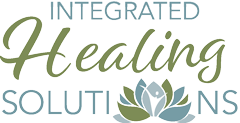At Integrated Healing Solutions you are treated with dignity and respect.
Services
Counseling
Counseling is a way to learn how to talk about, cope and heal your emotions. Counseling helps promote life changes as well as assists in how to adjust to life changes. Counseling can be a way to help learn how to communicate with your family, your partner, friends and coworkers.
Our counselors provide services to individuals, couples and families, to all ages including children, adolescents, women and men. Our counselors also specialize in providing services to First Responders, Active Duty Military and Veterans. Issues such as depression, anxiety, childhood issues, ADHD, trauma, postpartum depression, life changes and family/couples’ discord can be addressed by using various treatment modalities. Some of these treatment modalities, include, Eye Movement Desensitization Reprocessing (EMDR), Expressive Arts Therapy, Cognitive Behavioral Therapy (CBT), and Play Therapy depending on the client’s needs.
Please contact Kristin Poulin, Nichole Weiler or Latoya Edwards for more information.
EMDR
Eye Movement Desensitization and Reprocessing (EMDR) is a form of psychotherapy that began in 1987 by Dr. Francine Shapiro. EMDR is a process that assists in diminishing or eliminating reactions of traumatic events. These events can be traumas related to combat, car accidents, sexual abuse, child abuse or events that first responders may encounter while on the job. Trauma can also be related to being in a household where there was arguing, domestic violence, being bullied or death of a loved one. EMDR has been proven to assist in not only trauma but anxiety, depression, complicated grief, eating disorders, and addictions just to name a few.
If you are an appropriate client for EMDR the session length remains the same and it is covered by insurance as a psychotherapy treatment. EMDR has been designated as an effective treatment by the American Psychiatric Association, The World Health Organiziation, the U.S. Department of Veterans Affairs and Department of Defense, the US. Department of Health and Human Services and more.
Please visit emdria.org or call one of our certified clinicians for more information on EMDR.

Expressive Arts Therapy
The expressive psychotherapies are the use of the creative arts as a form of therapy, including the distinct disciplines expressive arts therapy and the creative arts therapies (art therapy, dance/movement therapy, drama therapy, music therapy, poetry therapy, and psychodrama). Unlike traditional art expression, the process of creation is emphasized rather than the final product.
The expressive therapies are based on the assumption that people can heal through the various forms of creative expression. Expressive therapists share the belief that through creative expression and the tapping of the imagination, people can examine their body, feelings, emotions, and thought process.
Please contact Kristin Poulin,LPC for more information.
Hypnosis
Hypnosis works by separating our physical and emotional reactions associated with past events or learned attitudes or behaviors and replacing them with new, healthier ones.
Hypnotherapy is guided hypnosis, or a trance-like state of focus and concentration achieved with the help of a clinical hypnotherapist. This trance-like state is similar to being completely absorbed in a book, movie, music, or even one’s own thoughts or meditations. In this state, clients can turn their attention completely inward to find and utilize the natural resources deep within themselves that can help them make changes or regain control in certain areas of their life.
Please contact Latoya Edwards for more information.
Reiki
Reiki is a Japanese word meaning universal life energy. It is a gentle method of hands-on healing that taps into the energy referred to as ki in Japan, chi in China, and prana in India.
The practice of Reiki is based on the teachings of Mikao Usui, who practiced and taught healing techniques in early twentieth century Japan. Reiki is not massage, hypnosis or a tool for diagnosing illness. Reiki is a technique that addresses both chronic and acute conditions, gently and powerfully promoting balance among all the body’s systems and the regenerative processes of body and mind.
What is a Reiki session like?
To receive Reiki, most people lie on a table fully clothed, so wear comfortable clothing. Little or no pressure is applied and no oils are used. The technique is so adaptable that you can receive it in almost any setting, in a chair or hospital bed, and through casts and bandages. Still and focused, the practitioner will simply place his or her hands on or above your head, shoulders, back, chest, stomach and limbs. Practitioners routinely follow a series of hand positions, but can place their hands anywhere you would like them to, for example over an injury or other area of discomfort. The teachings say that universal energy flows, not from the practitioner but rather through the practitioner, to you. You will receive the amount of energy you need to bring your mind and body into balance.
Though Reiki techniques appear simple, the effects can feel profound. Most people experience deep relaxation. You may also feel tingling, pulsing, a feeling of warmth and comfort, or you may fall asleep. Results can be subtle. Some recipients say they feel little during the session, but afterwards enjoy a sense of calm and well-being, and a deep, restful sleep. It is possible you could experience powerful sensations or emotions during or after a session. Your practitioner will want to hear about your responses to the degree you are comfortable sharing them.
If you would like to schedule a Reiki Session with one of our Master Reiki practitioners, please contact Nichole Weiler or Latoya Edwards.
